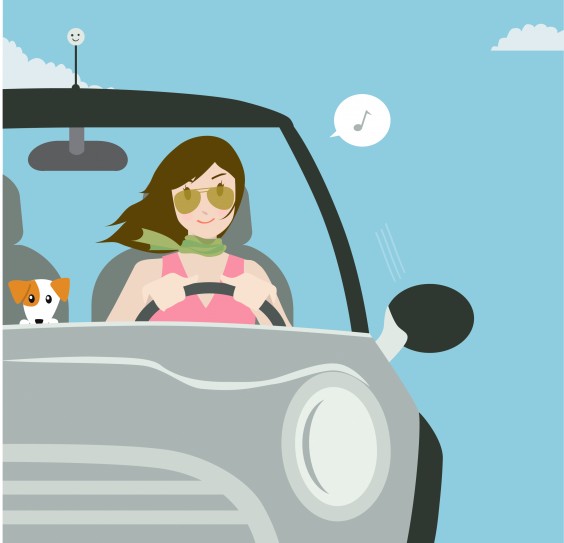
With all the talk of Uber recently, you might have considered signing up to drive for the service in order to earn some extra money. You might also wonder about the implications when it comes to your car insurance and who would pay in the event of an accident. Read on to learn all about what steps you may have to take to ensure you don’t run into any insurance surprises.
What is Uber?
Uber is a ride-hailing service (sometimes referred to as “ride-sharing”) that competes with taxis and black car services. Passengers hail an Uber from the smartphone app and arrange for a car to pick them up, often for less than the cost of a traditional taxi.
While Uber has a number of commercially-licensed black car services, it also has a product called UberX. UberX allows local drivers to respond to notifications on the Uber app by driving customers in their own (non-luxury) cars.
From a business perspective, Uber is similar to taxi companies in that they do not own or operate the cars, and drivers are not directly employed by them. However, unlike traditional taxi medallion companies, almost anyone can drive for UberX and competitors like Lyft, Sidecar, etc. In some states the only requirements for UberX drivers are car insurance, appropriate age, health, completion of a driving test, and passing a background check.
Driving For UberX Could Invalidate Your Personal Auto Insurance Policy
Your personal auto insurance policy may not provide coverage for you if you drive for a service like UberX. This is because personal car insurance policies have a list of exclusions, and they often include “driving-for-hire.” If you are driving for UberX or a similar service, you should check with your insurance company to confirm whether your policy covers this “commercial driving.” If it does not, you will want to consider purchasing supplemental commercial auto insurance, though for many part-time drivers, this may not be financially feasible.
Uber Provides (Some) Auto Insurance Coverage… When The App Is On
Uber requires all of their drivers to have car insurance, and provides supplemental insurance coverage, but only while the app is on. Here’s how it works: When the Uber app is off, a driver is covered by their own personal car insurance. When the Uber app is turned on, a low level of liability insurance becomes active. When a trip is accepted, a higher level of coverage kicks in and remains active until the passenger exits the vehicle. Previously Uber had only offered coverage when a passenger was in the car, but the company updated their policy after a series of accidents which resulted in various lawsuits.
Lyft and some of the other ride-sharing services point to the $1 million per incident excess liability coverage that certain states require them to carry. The policies are designed to deal with liability claims, which a driver’s insurance doesn’t cover. But these policies won’t cover a driver’s car – you must rely on your own personal auto insurance policy.
UberX Drivers May Also Need A Commercial Driver’s License
If you drive for UberX or a similar service, whenever you pick up a passenger you are driving professionally. Even though you are an independent contractor, some states will consider you to be a commercial driver. While each state’s laws are different, UberX and Lyft drivers should be aware that your state may require you to have a commercial driver’s license. (Note: Some states only require drivers to have a commercial license if they drive as a full-time occupation.) Check with your state’s DMV for their requirements.
If your state requires you to have a commercial driver’s license when driving for Uber, you could be subject to prosecution if you get into an accident and don’t have a commercial license, even if you have a commercial auto insurance policy. Things may soon get less complicated though. Several insurance companies have recently created unique auto policies that are tailored specifically to drivers of Uber, Lyft, etc. These insurance plans are currently only available in select states, but provide an alternative to a traditional commercial auto insurance policy.
In the end, if you’re looking to start driving for Uber, your best bet is to be upfront with your insurance company about the fact that you’ll be “driving-for-hire”, find out if you need commercial insurance, and find out if you need a commercial driver’s license.
In the meantime, give us a call at (800) 258-5101 to find the auto insurance policy that best fits your driving needs. You can also find us on the web at AnswerFinancial.com.
SOURCES: